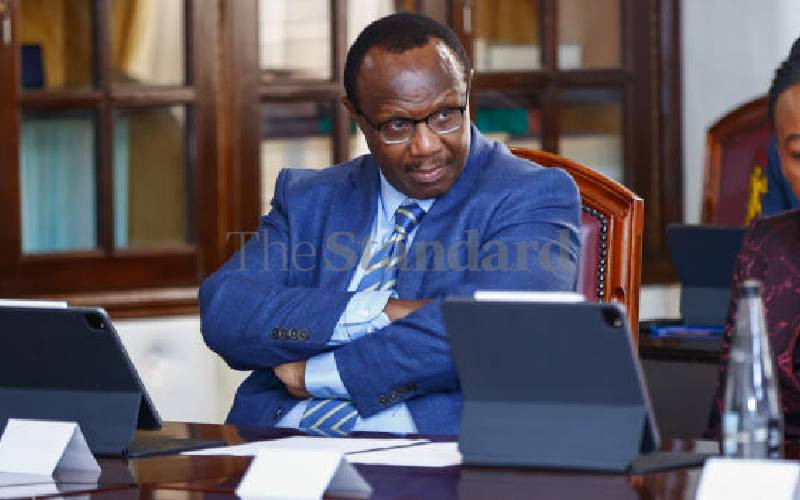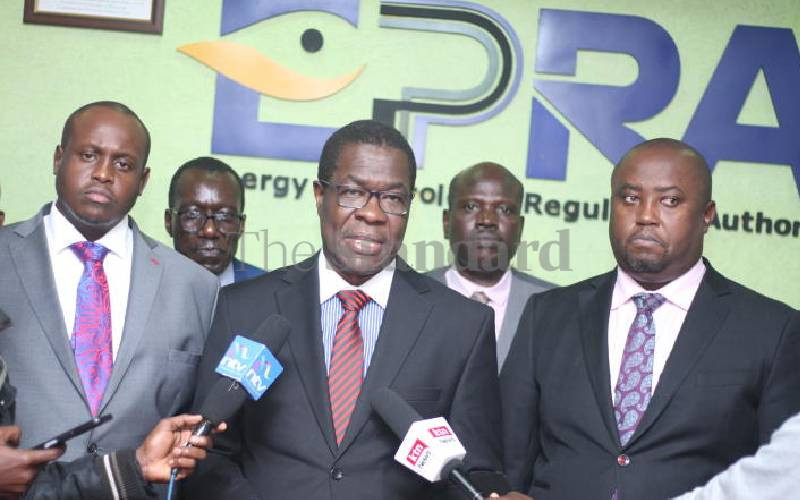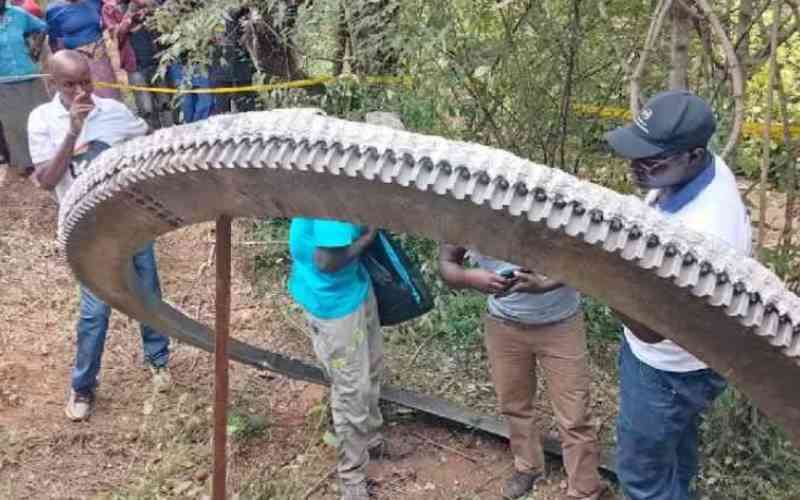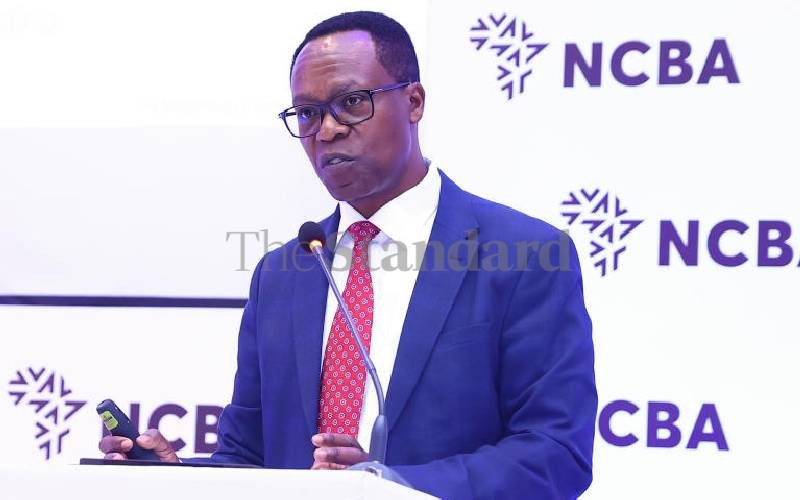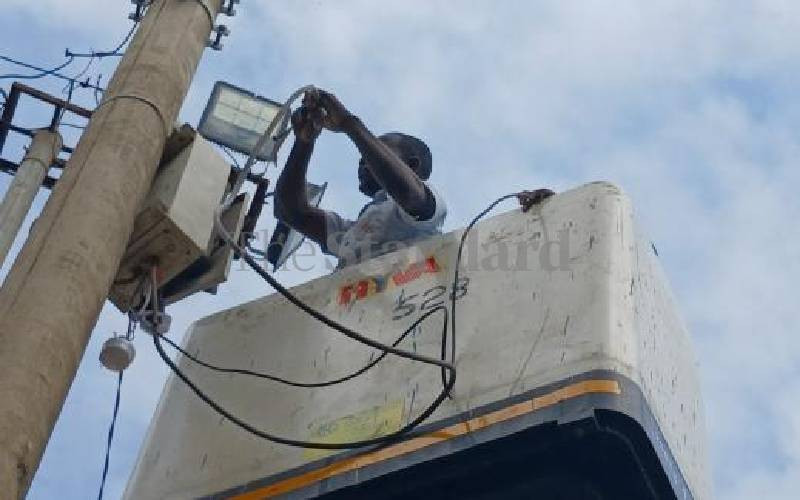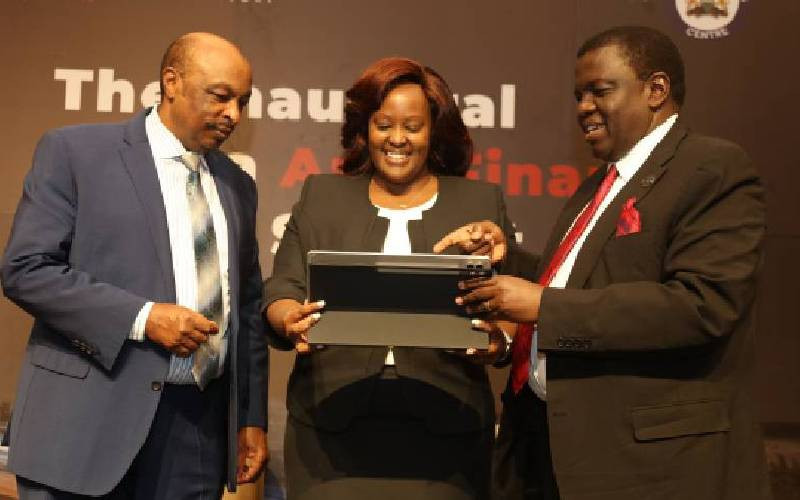
To many power sector stakeholders, Independent Power Producers (IPPs) are at the heart of all that is wrong with the industry, especially the high cost of electricity in Kenya.
This is to the extent that the country’s electricity tariff ranks as one of the most expensive on the continent.
The contracts the firms have with the country’s only power distributor Kenya Power are also shrouded in secrecy, adding to the controversy surrounding them.
In the latest turn, IPPs are one of the key areas of focus for reforming the power sector following a probe by MPs.
The latest inquiry by the National Assembly’s Departmental Committee on Energy, which was conducted over one and a half years, singles out the companies as the key to the sustained high cost of energy in the country.
The watchdog committee in its report notes that dealings by IPPs are marred by a lack of transparency right from the process of selecting them to the signing of Power Purchase Agreements (PPAs) with Kenya Power to determine how they are paid once operational.
“The procurement of IPPs is marred with a lot of irregularities, and the process of procuring IPPs is not competitive. The committee did not establish any credible process applied in onboarding IPPs,” says the report by the Energy Committee, noting that this has partly been due to failure to involve different stakeholders when bringing IPPs on board.
“The procurement of new IPPs has not been subjected to scrutiny by the National Assembly despite it being a matter that affects the plight of the citizens as well as industries in the country.”
It recommended the formation of an independent IPP Office that would oversee the onboarding of IPPs and new power plants into the electricity sector. It also wants the National Assembly to approve and ratify the IPPs before the government engages them.
In the latest report, the MPs appear incensed by the scant information on the owners of the IPPs. The Business Registration Services (BRS), which was among the entities that made submissions during the probe, gave the committee an IPP companies list of owners, shareholders and directors.
According to the lawmakers, however, the list did not name the people behind the companies. There has been speculation that some of the firms are owned by powerful Kenyans and some of their operations may not be above board.
“Notably, there is a general opaqueness in the disclosure of beneficial owners of IPPs, with a majority of them listing foreign companies as shareholders,” says the committee in its report.
Recent changes in law require companies to provide beneficial ownership, which BRS noted is in the process of being actualised.
It is not the first that MPs have had issues with the secrecy with which IPPs and generally the power sector operates.
In 2021, there was a push and pull between Kenya Power and the Public Investment Committee (PIC) of the National Assembly, requiring the former to submit PPAs it has signed with different power producers as well as their beneficial owners.
At the time, Kenya Power had argued that the PPAs contain non-disclosure clauses and hence it could not make the contracts public.
Kenya Power would later submit the PPAs but on the condition that the MPs would not make the content public in compliance with the contract’s non-disclosure clauses.
In the new report, the committee gives BRS six months to submit to Parliament a list of people who own the companies.
“Within six months upon adoption of this report, the Business Registration Services (BRS) submits to the National Assembly a report containing a list of owners, beneficial owners, shareholders and directors of each entity operating as an IPP in Kenya in accordance with section 93A of the Company Act, 2015,” says the committee.
“Subsequently, all new PPAs will be entered into with a power generation entity that has fully disclosed full beneficial ownership in compliance with the Act.”
Many of the concerns raised by the Energy Committee in the report are similar to those in previous reports and investigations, including some by the Auditor General as well as the much-publicised Presidential Task Force on PPAs, which was chaired by investor banker John Ngumi.
The Task Force in September 2021 made radical recommendations, including renegotiating PPAs as it sought to lower costs of power as well as a more than 30 per cent reduction in the cost of energy.
It pinpointed areas of improvement that would yield a 30 per cent reduction in the power tariff at the time. In December 2021, there was a 15 per cent reduction, but this was on account of a presidential directive, largely seen as a campaign tool. Power prices, however, shot up in September 2022 after the elections.
Another area of concern that has been blamed for high power costs is the procurement of heavy fuel oil (HFO) by thermal power producers.
The power plants generate electricity by burning HFOl. The acquisition of this fuel has, however, been the subject of controversy, with past audits showing that the companies may have been taking Kenyans for a ride and asking for more than they may have incurred.
The money that thermal IPPs spend on fuel is usually passed on to consumers and is captured in the power bill as the Fuel Cost Charge (FCC), driving up electricity bills.
The committee recommends that Kenya Power undertake a forensic audit on the procurement and system losses arising from the use of HFO.
The MPs also want Kenya Power, working with the Energy Regulatory Authority (Epra), to renegotiate the components of PPAs that are specific to fuel for thermal lPPs that use heavy fuel oil to generate electricity.
“Within six months upon the adoption of this report,” the committee says in its report.
“KPLC [Kenya Power] in conjunction with Epra renegotiates with IPPs on the Specific Fuel Consumption (SFC) component in the PPAs for a more competitive rate or charges the lower of the actual output vis-a-vis the predetermined SFC as they have the most direct impact on the fuel cost recovery as well as doing away with the excess starts component in the PPA as it is already factored in the Capacity Charges component of the PPAs.”
It also recommends that Epra develop Standard Operating Procedures between Kenya Power, IPPs and heavy fuel oil suppliers followed by an accountability mechanism to prevent potential loss through overpayment and underpayment for fuels supplied to IPPs due to needless variations which are then passed on to the consumer.
Epra, according to the committee’s recommendations, should also institute the standardisation of the standard bidding form for HFO, with the process of evaluating bids overseen by independent observers from the Consumer Protection Department of the Competition Authority of Kenya (CAK) and Consumers Federation of Kenya (Cofek).
“This will help in mitigating the significant unexplained variances in pricing between thermal plants of between one per cent and 60 per cent, with HFOs costing KPLC Sh28.08 billion for the financial year ended 30th June 2023,” said the report
The committee also notes that the thermal power plant operators could accrue more benefits if they pooled their resources and imported their heavy fuel oil in bulk. It recommends that the Energy Ministry constitute a sub-committee that will be involved in the bulk purchase of HFOs to realise economies of scale “through a competitive mode of procurement for HFOs modelled similarly to the Open tender system used in the importation of white petroleum products.”
Epra should further come up with a “fuel pricing formula for the HFOs based on international and domestic pricing factors, and the prices published every 14th of the month, in the Kenya Gazette and their website. The Committee shall initiate an amendment to the Energy Act, 2019 to effect this recommendation”.
The Ngumi-chaired task force had raised alarm after a review of the costs incurred by different thermal IPPs when buying HFO.
It noted a huge variance in the different players paid for the same commodity and purchased under near-similar conditions.
For instance, in 2019, the task force found out that one IPP would buy a tonne of HFO at $526 (Sh68,380 at current exchange rates) on average while another would buy the same at $1,037 (Sh134, 810).
The task force recommends a forensic audit of HFO procurement by the IPPs over the five years to 2021 as well as closer supervision by Kenya Power of the power producers in their fuel procurement processes.
A forensic auditor by the Auditor General, which was triggered by the recommendations of the task force found that electricity consumers have over the years been overbilled owing to malpractices in the procurement of heavy fuel oil IPPs use.
The audit, covering the period between 2018 and 2021, unearthed instances where IPPs overlooked fuel suppliers with low bids and instead awarded contracts to those with higher bids, sometimes more than double what had been the lowest bid.
The higher costs were borne by consumers. They would also claim to have used higher amounts of fuel when billing Kenya Power, while the actual consumption was lower.
Auditor General Nancy Gathungu now wants the IPPs penalised and also made to return the money that is deemed to have been surcharged to consumers irregularly.
At the same time, she has recommended action to be taken against Kenya Power staff mandated with overseeing HFO purchases among IPPs for failing to protect consumers.
Kenya Power, the report notes, has a responsibility of scrutinising the procurement of HFO by IPPs but failed to fulfil this mandate.
“The instances of irregularities warrant severe assessment of gross misconduct and action to be taken on the responsible parties,” says the Auditor General in the report.
Some of the less radical recommendations made by the Ngumi-chaired task force have been fully or partially implemented. Those that were expected to yield a reduction in the cost of power, such as the renegotiation of PPAs however stalled.
During the public participation phase of its inquiry, the Energy Committee heard that a multi-agency technical team was formed to review the PPAs and develop strategies for the renegotiation of the PPAs with the IPPs.
“The technical committee… commenced re-negotiation meetings with various IPPs and the sessions are still ongoing on intermittent days,” it notes in the report, adding that this meant that no action, including termination of PPAs, could be taken as long as the talks are ongoing.
Kenya Power, however, submitted that it intends to renegotiate existing PPAs within the terms and conditions of the agreements. The IPPs too offered a diplomatic submission to the committee noting that they are open to negotiations.
“The committee observed that there were no particular measures by IPPs to reduce the high cost of electricity. However, some of the IPPs expressed willingness to negotiate their tariffs through, there has been a status report from the Ministry on such a negotiation process,” says the committee in its report.
 The Standard Group Plc is a multi-media organization with investments in media platforms spanning newspaper print
operations, television, radio broadcasting, digital and online services. The Standard Group is recognized as a
leading multi-media house in Kenya with a key influence in matters of national and international interest.
The Standard Group Plc is a multi-media organization with investments in media platforms spanning newspaper print
operations, television, radio broadcasting, digital and online services. The Standard Group is recognized as a
leading multi-media house in Kenya with a key influence in matters of national and international interest.


